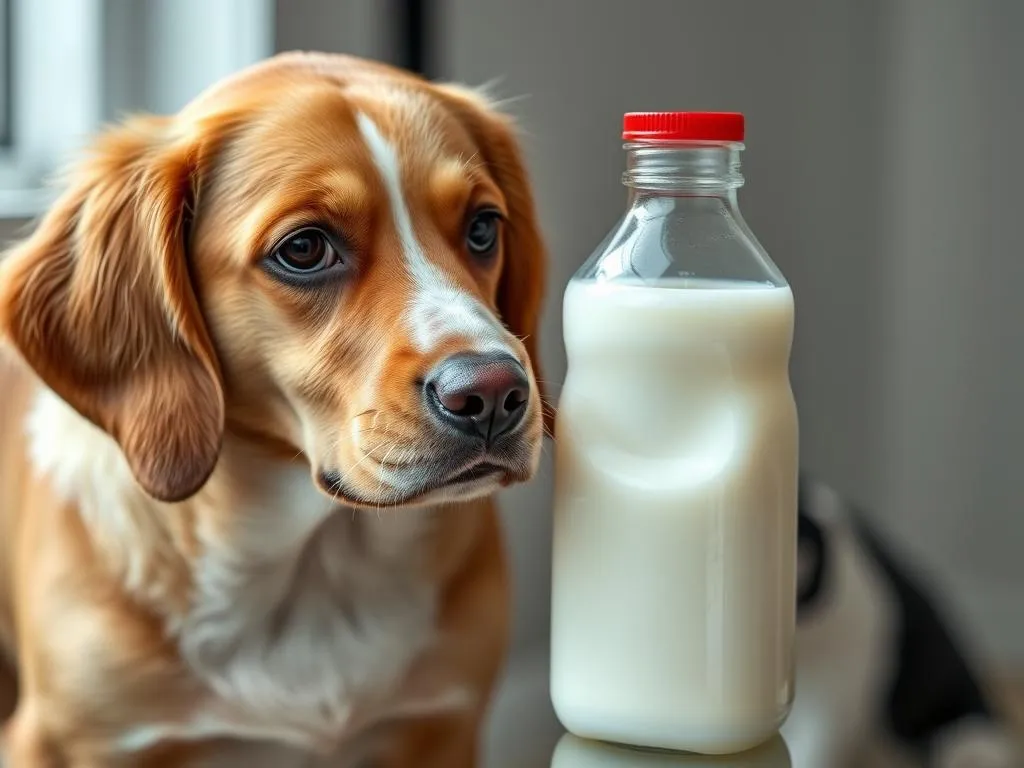
Proper nutrition is essential for maintaining the health and well-being of dogs. Just like humans, dogs have specific dietary needs that vary throughout their life stages. As pet owners, understanding these needs is crucial to ensuring our furry friends thrive. One topic that often sparks curiosity is whether dogs can drink human breast milk. This article delves into the safety, benefits, and drawbacks of dogs consuming human breast milk while providing insights into canine nutrition.
Understanding Dog Nutrition
Essential Nutrients for Dogs
Dogs require a balanced diet rich in essential nutrients to maintain optimal health. These nutrients include:
- Proteins: Vital for growth, repair, and overall health. Proteins are made up of amino acids, some of which are essential and must be obtained from the diet.
- Fats: Provide energy and support cell function. Essential fatty acids, such as omega-3 and omega-6, are crucial for healthy skin and coat.
- Carbohydrates: While not strictly necessary, carbs can be a good source of energy and help in digestion when included in moderation.
- Vitamins and minerals: Micronutrients that support various bodily functions, including immune response and bone health.
Different Stages of Dog Life and Nutritional Needs
Dogs go through several life stages, each requiring different nutritional considerations:
- Puppies: Require a nutrient-dense diet to support rapid growth and development. Puppy food is typically higher in protein and fat than adult dog food.
- Adult dogs: Need a balanced diet that maintains health without promoting obesity. The focus should be on maintaining a healthy weight while providing necessary nutrients.
- Senior dogs: Often require special diets to manage age-related health issues, such as arthritis or kidney disease. Senior dog food typically has lower calories and adjusted nutrient profiles to support aging bodies.
Common Dog Food Types
There are various options available for dog diets, including:
- Commercial dog food: Available in dry, canned, or semi-moist forms; these foods are formulated to meet the nutritional needs of dogs.
- Homemade diets: Some pet owners prefer preparing meals at home, ensuring control over ingredients. However, it’s crucial to ensure these diets are balanced and meet all nutritional needs.
- Raw feeding: This diet consists of raw meat, bones, and organ meats. While some advocates claim it mimics a natural diet, it requires careful planning to avoid nutritional deficiencies.
Human Breast Milk: Composition and Benefits
Nutritional Components of Human Breast Milk
Human breast milk is specifically designed to meet the nutritional needs of infants. Its composition includes:
- Proteins: Human breast milk contains both casein and whey proteins, with whey being more easily digestible and beneficial for infants.
- Fats: Rich in essential fatty acids, breast milk supports brain development and provides energy.
- Carbohydrates: Lactose is the primary carbohydrate in breast milk, promoting healthy gut bacteria and providing energy.
- Vitamins and minerals: Breast milk is packed with essential vitamins and minerals that support overall growth and health.
Benefits of Breast Milk for Infants
The benefits of breast milk for human infants are well-documented:
- Immune support: Breast milk contains antibodies and other immune-boosting compounds that help protect infants from infections.
- Digestive health: The composition of breast milk is easily digestible, promoting a healthy gut flora.
- Growth and development: The balanced nutrients in breast milk support overall growth and cognitive development.
Can Dogs Drink Human Breast Milk?
Safety of Human Breast Milk for Dogs
The safety of feeding human breast milk to dogs is a concern for many pet owners. While it is not toxic, there are important considerations:
- Allergies and intolerances: Some dogs may have allergies to proteins found in human milk or lactose intolerance, which can lead to gastrointestinal upset.
- Potential health risks: If a dog consumes breast milk that is not handled properly, there may be risks of bacterial contamination, leading to infections or digestive issues.
Nutritional Comparison: Human Breast Milk vs. Dog Milk
When comparing the nutritional profiles of human breast milk and dog milk, there are notable differences:
- Fat and protein content: Dog milk has higher levels of fat and protein compared to human breast milk, which is tailored for a puppy’s rapid growth.
- Digestibility considerations: Dogs are not designed to digest lactose efficiently as they mature, which can pose risks when consuming human breast milk.
Anecdotal Evidence and Expert Opinions
Veterinarians generally advise against feeding dogs human breast milk. While there are anecdotal reports of dogs consuming breast milk without issues, the potential risks outweigh the benefits. It’s crucial to consider each dog’s health status and dietary needs before introducing any new food.
Potential Risks of Dogs Consuming Human Breast Milk
Lactose Intolerance in Dogs
Many dogs are lactose intolerant, meaning their digestive systems lack the enzyme lactase needed to break down lactose. Symptoms of lactose intolerance can include:
- Diarrhea
- Bloating
- Gas
- Abdominal discomfort
If a dog exhibits these symptoms after consuming human breast milk, it’s essential to discontinue feeding it.
Risk of Overfeeding
While small amounts of human breast milk may not harm some dogs, moderation is key. Overfeeding can lead to:
- Weight gain: Extra calories from human breast milk can contribute to obesity.
- Nutritional imbalance: Feeding human breast milk instead of a balanced dog diet can result in deficiencies or excesses of certain nutrients.
Contamination Risks
Breast milk must be handled with care to avoid contamination:
- Bacterial growth: Improperly stored milk can harbor harmful bacteria, posing health risks to dogs.
- Hygiene concerns: If the milk comes from a source that does not follow strict hygiene practices, it could lead to infections in dogs.
Alternatives to Human Breast Milk for Dogs
Puppy Milk Replacers
For puppies that need a milk source, specially formulated puppy milk replacers are a safe and nutritious alternative. These products are designed to mimic the nutritional profile of dog milk, providing essential nutrients for growth. Some recommended brands include:
- Esbilac
- KMR (Kitten Milk Replacement)
- Nutracare
Nutritional Supplements
In some cases, nutritional supplements can help support a dog’s diet. These may include:
- Multivitamins: To fill dietary gaps.
- Omega fatty acids: For skin and coat health.
- Probiotics: To support digestive health.
Always consult a veterinarian before introducing supplements to ensure they meet your dog’s specific needs.
Homemade Dog Milk Alternatives
For those interested in making their own alternatives, several recipes can provide a balanced, nutritious option for puppies. A simple recipe can include:
- 1 cup of goat milk (or cow’s milk)
- 1 tablespoon of plain yogurt
- 1 tablespoon of honey (optional)
- 1 raw egg (optional for protein)
Mix these ingredients thoroughly and offer in moderation. Always ensure the ingredients are safe for dogs and consult with a vet for nutritional balance.
Conclusion
In summary, while human breast milk is a rich source of nutrients for infants, it is not advisable to feed it to dogs. The potential for lactose intolerance, allergies, and contamination risks makes it a less-than-ideal option. Instead, focus on providing a balanced diet tailored to your dog’s life stage and health needs. Always consult a veterinarian for personalized advice regarding your dog’s nutrition to ensure they receive the best care possible.
FAQs
Can all dogs drink human breast milk?
Not all dogs can safely consume human breast milk due to potential lactose intolerance and allergies.
What should I do if my dog consumes human breast milk?
Monitor for any signs of discomfort or gastrointestinal issues. If symptoms arise, consult a veterinarian immediately.
Are there any long-term effects of feeding human breast milk to dogs?
Long-term feeding of human breast milk could lead to nutritional imbalances and health issues, particularly if the dog is lactose intolerant. Always prioritize a balanced dog diet.









